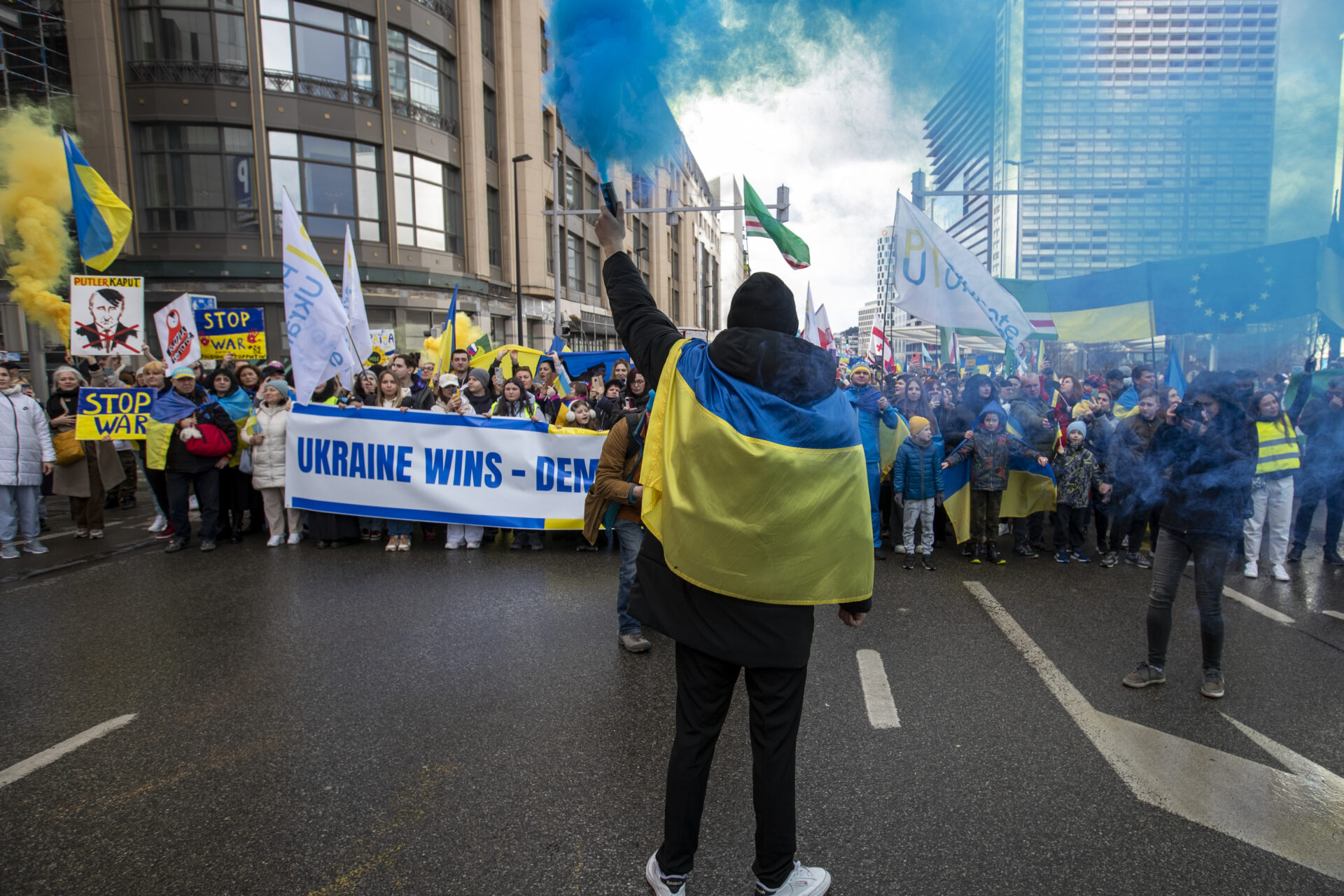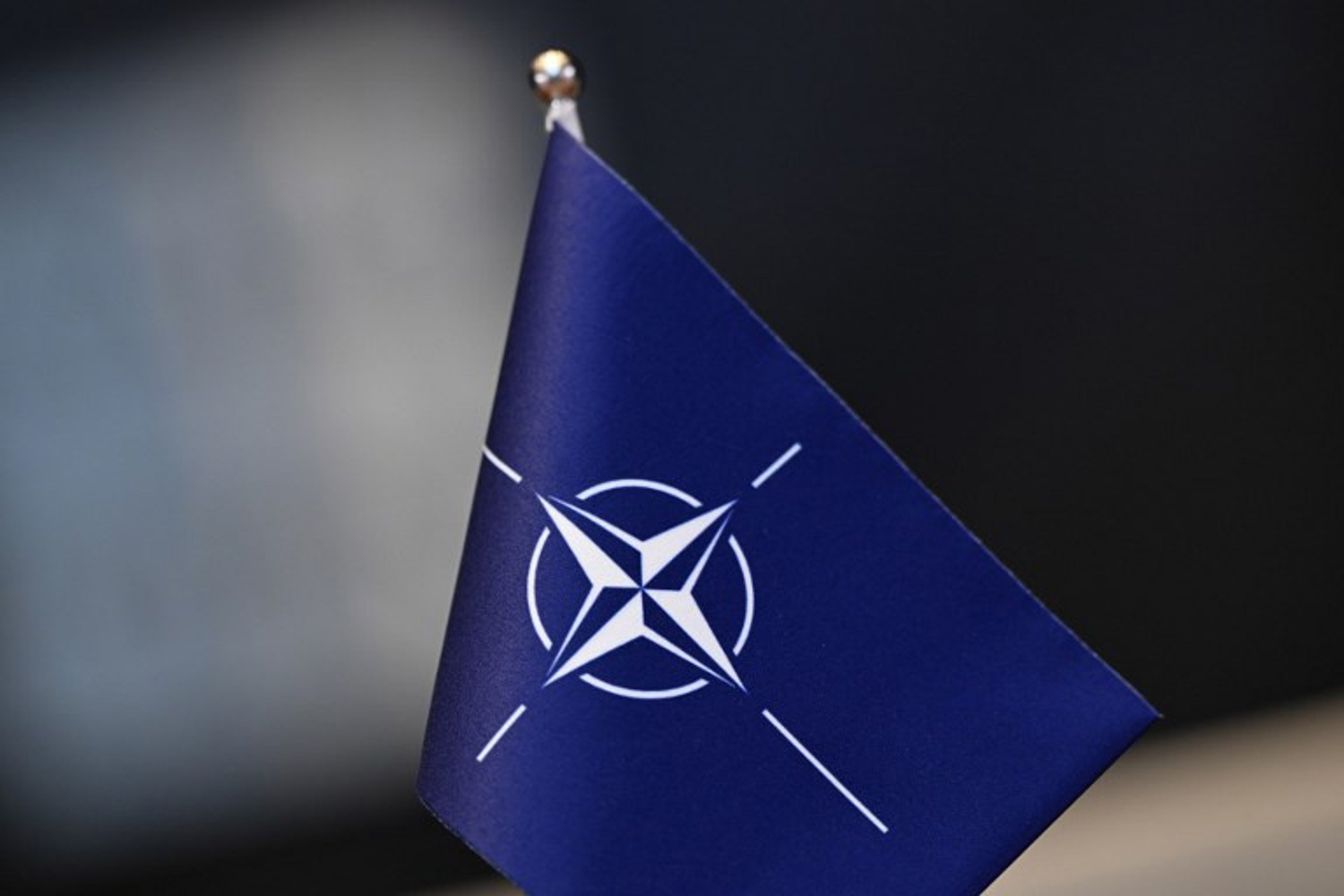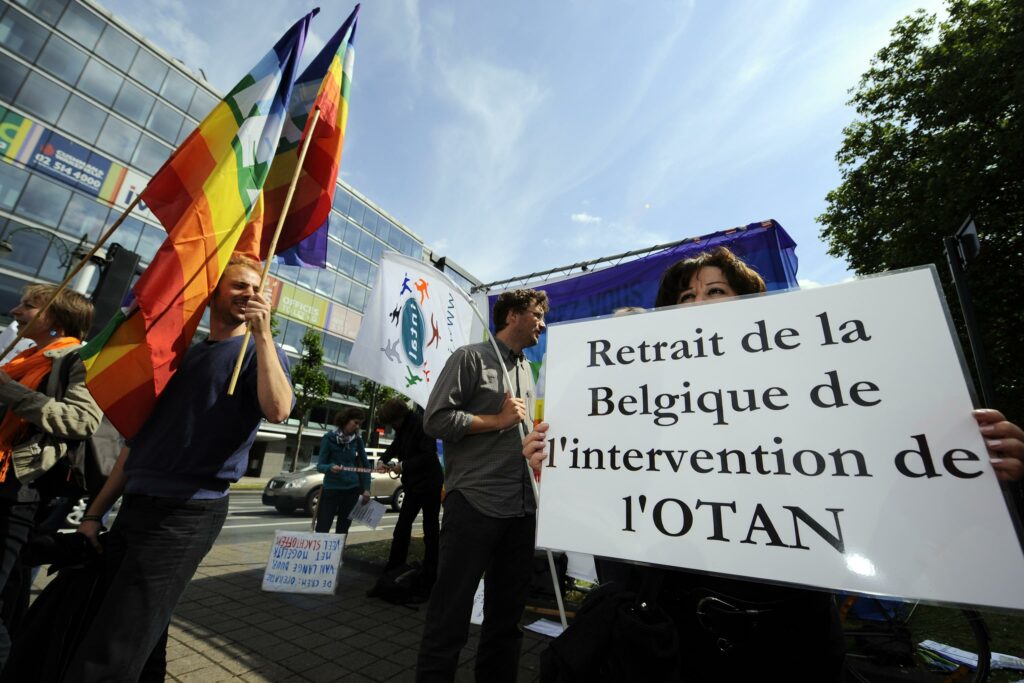As Belgium hastens to fall in line with the rest of Europe and scale up military spending, a coalition of civil society organisations (CSOs) has called on the government to consider alternative paths to peace.
Support for the North Atlantic Treaty Organisation (NATO) has soared since the fullscale Russian invasion of Ukraine in 2022, with countries like Finland rushing to join the alliance and longtime members pledging to boost defence spending more than ever before.
Since 2014, alliance members have been required to spend at least 2% of GDP on defence capabilities. This figure is billed to rise following the next NATO summit in June.
Belgium spends just 1.3% of GDP on defence (the third lowest in the alliance) but rightwing Prime Minister Bart De Wever's Federal Government is preparing to invest €4.5 billion this mandate and reach the 2% mark by 2025.

Credit: Belga / Nicolas Maeterlinck
Militarisation is framed as essential in the face of the "Russian threat" and broader geopolitical instability (the uncertain future of US support, for instance) but the newly formed Stop Militarisation coalition disagrees.
The coalition is made up of over 20 organisations including trade unions ABVV-FGTB and ACV-CSC, the youth branch of the green party Ecolo and Greenpeace Belgium.
"War is terrible and the search for solutions is essential. The current Belgian Government has only one approach: more weapons and more military spending," its manifesto states. "However, history shows that this does not lead to peace, nor does it guarantee 'security'."
Stop Militarisation argues that international security issues are rooted in socioeconomic and ecological disruption that must be resolved through diplomacy, disarmament, social justice and environmental sustainability. "Reducing security to a question of armaments and military confrontation carries enormous risks."
It calls on the Belgian Government to place these ideals at the heart of its foreign affairs strategy and urges members of the public to sign the manifesto.
Stop spending increases
Belgium is portrayed as the "bad student" with its relatively low GDP percentage but Stop Militarisation points out that defence spending doubled from €3.9 billion to €7.9 billion between 2017 and 2024.
It says the prospect of war between Russia and the alliance "does not legitimise" further spending as the former is "embroiled" in the war in Ukraine and is unlikely to expand its operations to other countries.
"We call for the planned investments to be reallocated to social security, public services, international solidarity, the fight against climate change and refugee protection – all mechanisms that effectively and genuinely contribute to human security."

A flag with the logo of the North Atlantic Treaty Organization (NATO) at the Nato headquarters in Brussels on February 15, 2024. Credit: Belga / AFP
Belgium's 'proactive' potential
De Wever's planned defence budget includes the sale of state-owned assets, which the coalition categorically rejects as "the privatisation of collective resources for the benefit of the military-industrial complex [...] It is illusory to believe that more weapons will guarantee more security."
The coalition says Belgium has the chance to play a "proactive role" in negotiating peace with Russia. It "rejects a world order based on rivalries between power blocs aimed at geostrategic domination."
It is also opposed to the deployment of nuclear weapons and calls on Belgium to join the Treaty on the Prohibition of Nuclear Weapons.
The coalition is critical of attempts to "frighten" the public by ramping up awareness about militarisation as a way to "militarise" culture.
"A militarised security culture does not allow a society to understand or address the major challenges facing humanity. We call for the active promotion of human rights, democracy, and justice—in short, the promotion of a culture of peace, in which education plays a central role."

